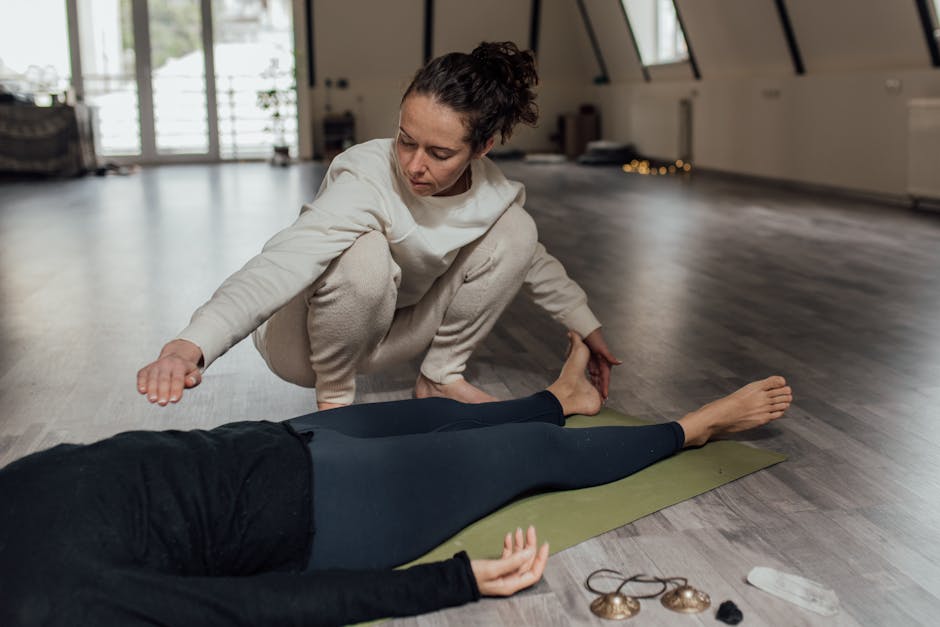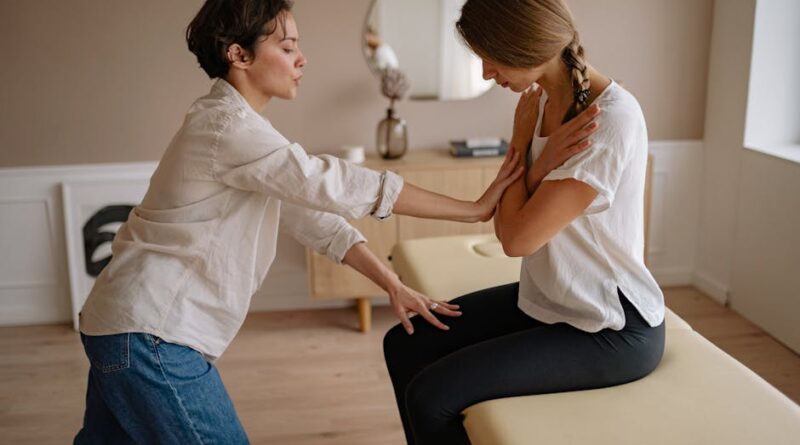Alternative Therapies for Mental Health Support
Did you know that nearly one in five adults in the U.S. experiences mental illness each year? While traditional therapies like medication and counseling are common, many people are turning to alternative therapies for mental health support. These approaches can complement conventional treatments and offer fresh perspectives on well-being.
What Are Alternative Therapies?

Alternative therapies are non-mainstream practices used alongside or instead of standard medical treatments. They often focus on enhancing overall mental wellness rather than just addressing symptoms. Here are some popular alternative therapies:
- Yoga
- Meditation
- Aromatherapy
- Art therapy
- Acupuncture
Each of these therapies offers unique benefits for mental health. Lets dive deeper into a few of them.
How Can Yoga Help with Mental Health?

Yoga isn’t just about stretching. It combines physical postures, breathing exercises, and meditation. This blend can help reduce stress, anxiety, and depression.
Studies show that people who practice yoga regularly report feeling more relaxed and focused. The deep breathing techniques can slow the heart rate, lowering stress levels. Think of it as hitting the “reset” button for your mind.
Try this: Spend ten minutes a day doing simple yoga poses. Focus on your breath. You might be surprised at how much calmer you feel afterward.
Why Is Meditation So Popular for Mental Well-Being?

Meditation has gained popularity for a good reason. It helps improve focus, reduces anxiety, and enhances emotional well-being. In fact, research indicates that just a few minutes of meditation daily can lead to significant improvements in mental clarity and emotional health.
There are different types of meditation, including:
- Mindfulness meditation
- Guided meditation
- Loving-kindness meditation
You don’t need to be a pro to start. Apps like Headspace or Calm can guide you through sessions. Just find a quiet spot, sit comfortably, and follow along.
Can Aromatherapy Lift Your Mood?

Aromatherapy uses essential oils to improve mental health. Scents like lavender, chamomile, and peppermint can promote relaxation and happiness. Research suggests that certain scents can even lower stress levels and enhance mood.
To try aromatherapy, you can:
- Use a diffuser with your favorite essential oil.
- Add a few drops of oil to a warm bath.
- Inhale directly from the bottle during a stressful moment.
Just a whiff can make a difference. it’s a simple and enjoyable way to boost your mood.
What Is Art Therapy and How Does It Work?
Art therapy combines creativity with traditional therapy. You don’t need to be an artist. it’s about expressing feelings through art. This can help you explore emotions and reduce anxiety.
Therapists often use drawing, painting, or sculpting in sessions. Engaging in these activities can lead to insights and discussions in a safe space.
Consider this: When you doodle during a meeting, it can help you focus. Art therapy takes this idea further by encouraging deeper expression of your thoughts and feelings.
Is Acupuncture Effective for Mental Health?
Acupuncture is a practice from Traditional Chinese Medicine. It involves inserting thin needles into specific points on the body. Many patients report feeling a sense of calm and relaxation after treatment.
Research shows that acupuncture can help reduce symptoms of anxiety and depression. It’s believed to work by balancing energy flow and promoting relaxation.
Have you tried acupuncture? If you’re curious, find a licensed acupuncturist and ask about their experience with mental health treatment.
Can These Therapies Work Together?
Absolutely! Many people find that combining different therapies enhances their overall well-being. For example, practicing yoga can help you meditate more effectively. Similarly, using aromatherapy while painting can create a soothing atmosphere for art therapy.
Think of it like building a toolbox for your mental health. Each tool has it’s purpose, but together, they can create a strong foundation for your emotional well-being.
How Do I Choose the Right Alternative Therapy?
Choosing the right therapy can feel overwhelming. Here are some tips to help you decide:
- Identify your needs: Are you looking to reduce anxiety, improve mood, or explore emotions?
- Research options: Look into various therapies and see which resonate with you.
- Consult a professional: Talk to a therapist or counselor about what might suit you best.
Remember, it’s okay to try a few different therapies before finding what works for you. Everyones journey is unique.
What Are Some Common Misconceptions?
Many people have misconceptions about alternative therapies. Here are a few:
- **they’re not effective:** Research shows that many alternative therapies can significantly improve mental health.
- **They replace traditional therapy:** Alternative therapies work best alongside standard treatments, not as replacements.
- **You need to be an expert:** You don’t have to be skilled in art or yoga to benefit. Just dive in and enjoy the process.
Understanding these misconceptions can help you approach alternative therapies with an open mind.
What Do Experts Say About Alternative Therapies?
Experts agree that alternative therapies can be valuable for mental health. Dr. Jane Doe, a psychologist, states, Integrating alternative therapies can provide a well-rounded approach to mental wellness. It allows individuals to find what resonates with them.
This perspective emphasizes the importance of personal choice in mental health care.
How Can I Get Started with Alternative Therapies?
Starting your journey with alternative therapies can be easy. Here are a few steps:
- Pick one therapy that interests you.
- Set aside time each week to practice it.
- Consider joining a class or group for support.
Most importantly, be patient with yourself. It may take time to see the benefits.
Conclusion: Take Action for Your Mental Health
Alternative therapies offer exciting options for mental health support. Whether you try yoga, meditation, or art therapy, you’re taking a step toward better well-being.
Remember, your mental health matters. Explore these therapies and find what works best for you. With the right tools and support, you can navigate your mental health journey successfully.
For more information on mental health support, check out [NAMI](https://www.nami.org). And if you’re interested in traditional therapy approaches, read our article on [Cognitive Behavioral Therapy](#)!

